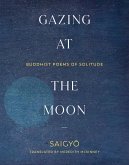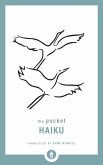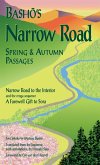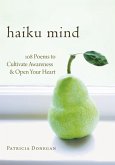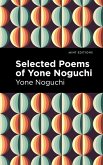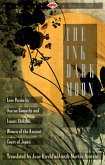Momoko Kuroda (b. 1938) is a remarkable haiku spirit and a powerfully independent Japanese woman. The one hundred poems hereher first collection in Englishshow her evolution as a poet, her acute lyricism, and her engagement as a writer in issues central to modern Japan: postwar identity, nuclear politics, and Fukushima. Abigail Friedman's introduction and textual commentaries provide important background and superb insight into poetic themes and craft.
I wait for fireflies / I wait as if for someone / who will never return
Momoko Kuroda is one of Japan's most well-known haiku poets.
Abigail Friedman lives near Washington, DC, and is author of The Haiku Apprentice.
Dieser Download kann aus rechtlichen Gründen nur mit Rechnungsadresse in A, D ausgeliefert werden.



